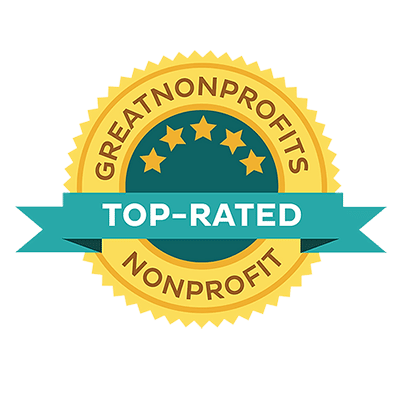Grand Challenge to Award $650k in 2021
By Louisa Sax
Technology has allowed us to break barriers, push boundaries, manipulate the landscape, and access previously impossible-to-reach natural resources. Advances in fishing gear, for example, have enabled us to harvest deeper, further and smarter in order to satisfy an ever-increasing global demand for seafood — and to give recreational anglers a better chance at catching the big one.
The miracle of technology has been applied to almost every aspect of life, providing huge benefits to education, research, travel, convenience, choice, luxury and capitalism.

But we are now facing a turmoil of consequence. Earth is warming; animals are violently losing their homes to deforestation, which in turn is flooding the atmosphere with once-sequestered carbon dioxide; the disruption of natural water flows are starving vital ecosystems of fresh water; and the sea could contain more plastic than fish in just a few short decades. Humans created these problems. But can we solve them as well?
There is no doubt that technology has exacerbated environmental issues, but innovation companies such as Conservation X Labs believe that we can harness the exponential power of technology to reverse those trends.
Technology is the next generation of conservation.
Conservation X Labs is a technology company that spurs solutions to the extinction crisis and believes that “open innovation, collaboration across disciplines, and community engagement are the keys to generating world-changing ideas, and that many minds working together can refine them to achieve big things.”
To accomplish their mission to end human-induced extinction, Conservation X Labs empowers a global community of innovators to use their unique talents to spark, develop and collaborate on solutions that address the drivers of extinction. By “harnessing planetary genius,” they aim to build replacements, engineer resilience and improve enforcement, and with the theory that “innovation happens at the intersection of disciplines,” they call on thinkers from all industries to contribute their skills to envision and create these complex solutions to conservation.

One potentially transformational invention is the Nucleic Acid Barcode Identification Tool, or NABIT, which is a handheld genetic device for the frontlines of conservation that allows anyone, anywhere, at any time to confirm species’ identity through modern DNA barcoding techniques. The potential applications for this technology will be momentous in addressing the illegal wildlife trade, fish traceability (is that really grouper on your plate in your favorite restaurant?), and detecting pests and pathogens of wildlife and humans.
An interdisciplinary community of conservation innovators is brought together on The Digital Maker Space, an open online community platform for engineers, entrepreneurs and conservationists to connect and launch bold new ideas to end the extinction crisis. Ideas that have been sparked on the platform include a low-cost, deep ocean camera trap, an app to find and support local conservation efforts, and a lineless lobster trap to prevent whale entanglement.
Conservation X Labs also leads innovation competitions, including their Grand Challenges for Conservation, awarding cash prizes for the best solutions to a specific conservation issue. The competition stimulates markets by building awareness around that issue and structuring a community of problem solvers and entrepreneurs around finding potential solutions. Previous Grand Challenges have sought solutions to tackle issues in ocean conservation, invasive species, climate change and freshwater ecosystems. Finalist innovators in each challenge have been awarded millions of dollars in prizes and further opportunities for partnership to advance their innovations.

Conservation X Labs launched their latest Grand Challenge for Conservation, Microfiber Innovation Challenge, in January 2021. The challenge is focused on “the big problem too small to see” — plastic microfiber pollution — which comes from many of the textiles we use in our everyday lives. The challenge is looking for solutions to replace textiles that are sources of plastic microfibers, and/or develop new textile manufacturing processes to decrease microfiber shedding. Anyone, anywhere with an innovation idea can apply for $650,000 in prizes by the submission deadline of June 25, 2021.
The Guy Harvey Research Institute (GHRI) uses satellite tag technology to track and analyze the migratory behavior of large pelagic species, including sharks and billfish. This technology has contributed information on key habitats and migratory corridors, growth and mortality rates, and interactions with commercial fishers providing data that has influenced changes to wildlife conservation policy on an international level. In 2018 for example, GHRI was able to present, through fisheries independent data, that 30% of tagged shortfin mako sharks were harvested in the Northwest Atlantic. This led to emergency NOAA protections for the species, which were ultimately awarded a CITES Appendix ii listing.
However, rapid advances in conservation technology are still necessary so that conservation can operate at the speed and capacity necessary to keep up with — and overcome — environmental issues.
By leveraging exponential technology and human ingenuity, we have the potential to provide solutions that have real life applications that can transform the future. Technology is the future, and a global community of innovators is necessary. You too can join the community of innovators creating new technologies to protect the planet.
Visit ConservationXLabs.com to learn more.




